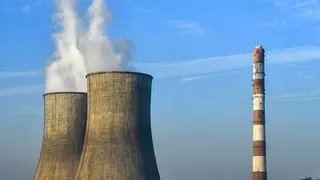At least 10 secondary steel and sponge iron mills, from Odisha and Chattisgarh, have placed orders to the tune of 60,000 tonnes for coal from Mozambique. Another 50-odd have evinced interest in exploring the mineral as an alternative to the now pricier South African coal that has witnessed increased demand in European nations, following embargo on Russian supplies.
Compared to the high-end South African variant–also called RB2–the coal from Mozambique is priced 8–10 per cent cheaper. Called VT-1 or Vulcan Thermal grade 1, the coal finds usage in DRI (direct reduced iron) making, also called sponge iron.
Trade sources tell BusinessLine, 250,000 tonnes have been brought-in by a trading company with stocks landing at two different ports–Paradeep and Vizag. A part of the stock will be used by an Indian steel mill from whose captive mines it has been sourced.
60,000 tonnes booked
“So far 60,000 tonnes have been booked by sponge iron mills and secondary makers of Odisha and Chattisgarh. There are 50-odd enquiries so far. Apart from this, a steel mill use part of the stock,” an official of the trading company said.
The current price of Mozambican being offered is around $220 per tonne; and also cheaper than the South African variant, currently priced between $250–$260 per tonne.
Australian coal does not find much usage because of kiln specification of Indian millers.
Mills explore alternatives
In the recent past, one of the larger Indian steel companies has experimented with the VT-1 grade coal. The results showed that average consumption for every tonne of sponge iron is 700–800 kg coal, or to produce 1,000 kgs of sponge iron around 800 kg of the coal is required.
Against this, requirement of Indian coking coal, sourced from Coal India is 1,500 kg/tonne (of sponge iron); while South African coking coal consumption is 700–800 kg/tonne.
Elevated global prices, slow pace of domestic coal deliveries to the sponge iron industry, are amongst the two reasons which saw sponge iron mills change buying patterns and look for coal from Mozambique, Russia, among others.
Lack of mine linkage by Coal India is another concern that mills have raised time and again. Coal India’s offerings through linkages are priced “substantially lower” than imported coal.
Fall in South African coal imports
According to vessel line-up data by Coalmint, the coal vertical of Steelmint, shipments to India recorded a 35 per cent m-o-m fall to 960,000 tonnes in July. Imports into India began increasing in May following domestic coal supply crunch.
Price volatility of the RB 2 coal variant has been a concern for Indian mills.
According to the report, South African coal imports “are likely to be under-pressure” amid elevated high calorific value coal prices. However, demand for low-calorific value ones (4800 NAR) remains strong, “following the rising blending ratios with alternate-origin coal”.







Comments
Comments have to be in English, and in full sentences. They cannot be abusive or personal. Please abide by our community guidelines for posting your comments.
We have migrated to a new commenting platform. If you are already a registered user of TheHindu Businessline and logged in, you may continue to engage with our articles. If you do not have an account please register and login to post comments. Users can access their older comments by logging into their accounts on Vuukle.